Sep 3, 2025 12:02 PM
Keeping the Flame at Van Gelder Studio
On the last Sunday of 2024, in the control room of Van Gelder Studio, Don and Maureen Sickler, co-owners since Rudy Van…
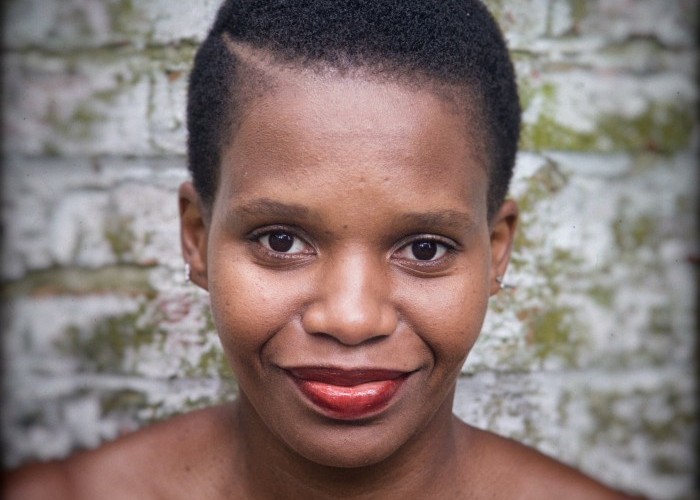
Tutu Puoane had to be convinced to take on We Have A Dream, a project on which she interprets socially conscious compositions alongside the Brussels Jazz Orchestra.
(Photo: Courtesy of the Artist)Dr. Martin Luther King Jr. was not just an American figure, he was an international hero.
His burning advocacy for combatting sociopolitical injustice—particularly in regard to unflagging racism in the United States—has inspired people from around the world, including musicians of various genres, ranging from soul and jazz to punk and reggae.
Coinciding with the 50th anniversary of King’s assassination on April 4, South African-born and Belgium-based singer Tutu Puoane released her poignant new disc, We Have A Dream (Soul Factory), a collaborative effort with the Brussels Jazz Orchestra and Amnesty International Belgium.
Blessed with an alluring, piercing soprano—reminiscent of soul and gospel singer Denise Williams—Puoane delivers deft makeovers of socially conscious songs associated with Nina Simone, Marvin Gaye, Donny Hathaway, Sting, Joni Mitchell and others.
She spoke with DownBeat about how she learned about King’s legacy while growing up in South Africa, and she reflected on her initial reticence in taking on her latest project.
The following has been edited for length and clarity.
How did you curate the music for We Have A Dream? Some songs, like Nina Simone’s “Why” or Donny Hathaway’s “Someday We’ll All Be Free,” are obvious. Others, like Rod Stewart’s “The Killing Of Georgie” or Sting’s “They Dance Alone,” are not.
It was between me and [saxophonist] Frank Vaganée, who is the music director of the Brussels Jazz Orchestra. The whole project was basically his idea. We had done another project together around the music of Miriam Makeba. Frank gave me a whole bunch of tunes. Of course, I had the freedom to choose the songs that I wanted to do. So, the disc is a result of my list and his.
We Have A Dream features two Joni Mitchell songs, “Big Yellow Taxi” and “Cherokee Louise.” Your previous disc was The Joni Mitchell Project (Soul Factory). Can you talk about why she’s such an inspiration for you?
I’ve been in love with her music since I was about 18 or 19. She’s done so much since I got ahold of the first album that I heard of hers, which was Mingus. Since then, I’ve been discovering so much of her music. Some of the older songs that I fell in love with as a teenager, I sort of grew into them. The older I got, the more I understood what she was singing about.
“Cherokee Louise” is a song that I recently discovered while I was doing The Joni Mitchell Project. The lyrics completely go straight through your heart.
What are some of her songs that you lived through?
“Both Sides Now”—when I heard that, I’d just been on a plane for the first time. So, that feeling of being on a flight for the first time, like you’re inside a large marshmallow or a huge bowl of ice cream; when I heard that first verse of that song, I just said, “Yeah! I know what she’s talking about.”
“Cherokee Louise”—I’ve had my share of abuse, even though it wasn’t as harsh as the girl in the song. But I also grew up around people who were sexually abused. So, I have some inkling of what that song’s about personally.
Why was it important to include Rod Stewart’s “The Killing Of Georgie, ” which depicts a gay protagonist losing his life after being physically assaulted, on We Have A Dream?
Frank chose that song. But the thing that drew me to it is the lyrics.
We were specifically looking for lyrical content that spoke about civil rights, which includes gay rights or anything else that dealt with making this world a better place. Even before I listened to the music of that song itself, I looked at the words, which were the most important thing to me. It’s such a powerful story. When I sing it, I see a movie in my head.
You also sing “It’s Not Easy Being Green,” a ballad that Kermit the Frog used to sing on Sesame Street.
I think that was on Frank’s list. But I’ve been singing that song since I was a child. So, it was an easy choice. When you’re younger, some songs you sing just because they are pretty. You don’t necessarily know what the lyrics mean.
It was only after living in Cape Town that I got the meaning. I was completely in love with that city. I still am, especially its natural beauty. Because I was a music student, the white kids and I were fighting the same fight, which was getting paid after a gig. So, I didn’t feel that racial tension that there is in Cape Town.
It was after I left Cape Town and went back to visit that I realized the racial tension. It’s one of the most racist places that you can be in. As you get a little bit older and live, you realize that you have a completely different approach to singing this song that you’ve been singing since you were 17 years old, because you have experienced what it’s like to be an outsider.
Talk about the title of the disc, We Have A Dream, which invokes King’s most famous speech, “I Have A Dream.” Why use “we” instead of “I?”
I’m going to be honest. When Frank first approached me with this idea of doing something around Dr. Martin Luther King Jr., I was a little hesitant, because I have to be careful. Living here in Belgium—this very lily white, safe country—and working with predominately white males, I have to be careful being the only black woman and being used in a way so they can pat themselves on the shoulders and say, “Look at us. And look who’s in the front—a black woman.”
I’ve always wondered, if Dr. King was still alive, would these white men all still love him? A lot of them are quite ignorant to Dr. King’s politics. Some just want to ride on that universal love for him.
Frank and the orchestra had to convince me. When they explained that they didn’t want to concentrate just on Dr. King and that they just wanted to use the ideas that he had to live in a better, non-racist world, I came aboard. They were looking for a socially woke project [laughs], if I’m being honest.
Growing up in South Africa, talk about how you learned about King. Was that history even taught there?
No, it wasn’t taught. Even our own history was not taught in school. I learned about Dr. King quite late. I chose history during my last year in high school, which was in 1996. Then, they had just started teaching about the African National Congress and how it was formed.
But our own history was not taught in school. And particularly American history was not taught in school. Our history lessons were about when Jan van Riebeeck [1619–’77] landed in Cape Town and everything about the world wars. They taught us about Hitler and Mussolini; European history is what we got in school.
So, I can’t really pinpoint exactly how I learned about Dr. King. I supposed it was through South African media and possibly the music that touched upon his legacy. We were so closed off from the rest of the world. Apartheid was really smart in how they shut out a lot of knowledge from us. I didn’t hear Miriam Makeba songs until she came back to South Africa after being exiled.
As a South African-born singer, you sort of extend the legacy of people like Makeba and Hugh Masekela, who used their artistic platforms to sing about social and political injustices. Do you see that happening much in Belgium?
No, I don’t see that happening a lot in Belgium because—and this might be wrong of me to say—Belgian artists are quite comfortable compared to other artists around the world. In general, if it doesn’t affect the Belgian artists, hardly any of them are going to speak up. There’s no suffering here that will get people to raise their fists. Everyone here is fighting to just get the little gigs that they can get. There isn’t much activism going on here.
And that’s OK. Not everybody is going to be an activist. Nina Simone spoke about how an artist should reflect what is going on around them. But I don’t feel like I want to hold everyone hostage to just that, because if you’re just doing it because you’re an artist and it’s not honest, the audience will see that it’s not honest. The dishonesty is going to show itself.
Also, we all don’t have the balls to be activists. Some artists just want to have fun and forget about all the troubles that surround us. And maybe that’s a form of activism—making people happy.
Where do you find your kindred spirits in Belgium? Obviously, there are people like Vaganée, who are thinking about social issues. He can’t be the only other person there.
[Laughs] I find them in South Africa; social media helps.
I don’t go out a lot in Belgium, because I have two kids. But I am discovering that there is some socially conscious stuff happening in Brussels. But my kindred spirits are in South Africa. Thanks to social media, we can stay in touch.
Given what you’ve said, what do you hope people—particularly those living in Belgium—take away from We Have A Dream?
For the people in Belgium, I hope that they become more aware of the world. The Belgian schools don’t really teach them their own history. Most Belgians don’t know what Leopold [1835–1909] did in the Congo; a lot of the people here are quite ignorant of that sort of history.
So, I hope that this music opens their minds a little bit and encourages them to do a little bit more digging. But at the same time, I want people who come to my concerts to have a good time. DB
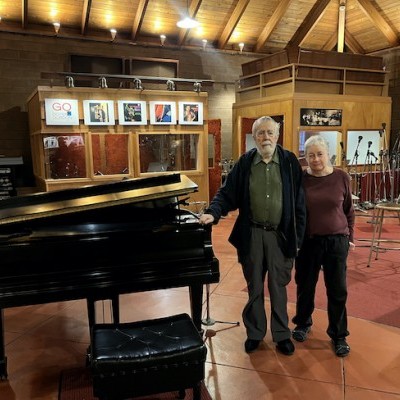
Don and Maureen Sickler serve as the keepers of engineer Rudy Van Gelder’s flame at Van Gelder Studio, perhaps the most famous recording studio in jazz history.
Sep 3, 2025 12:02 PM
On the last Sunday of 2024, in the control room of Van Gelder Studio, Don and Maureen Sickler, co-owners since Rudy Van…
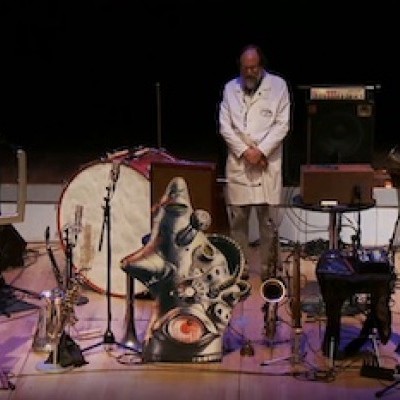
Trio aRT with its avalanche of instrumentation: from left, Pheeroan akLaff, Scott Robinson and Julian Thayer.
Sep 3, 2025 12:03 PM
Trio aRT, a working unit since 1988, shockingly released its very first studio recording this summer. Recorded in…
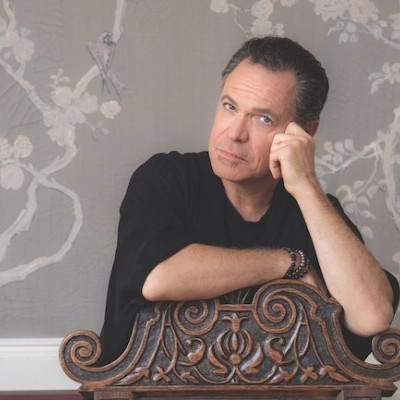
“Think of all the creative people I’m going to meet and a whole other way of thinking about music and a challenge of singing completely different material than I would have sung otherwise to my highest level in dedication to the moment,” Elling says about his Broadway run.
Sep 9, 2025 1:18 PM
Kurt Elling was back at home in Chicago, grabbing some family time in a late-June window between gigs. Sporting a smile…
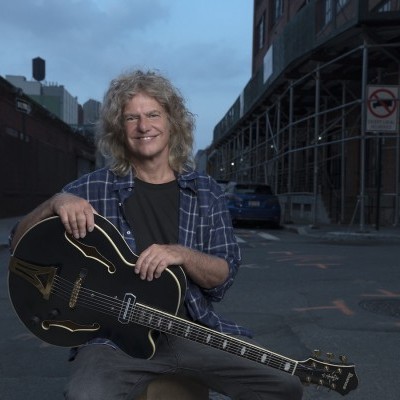
Pat Metheny will perform with his Side-Eye III ensemble at Big Ears 2026 in Knoxville, Tennessee, next March.
Sep 9, 2025 12:19 PM
Big Ears has announced the lineup for its 2026 festival, which will take place March 26–29 and include 250…
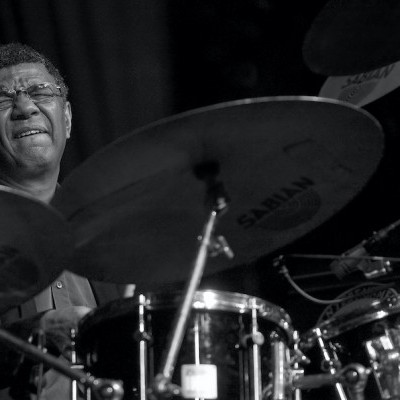
Jack DeJohnette boasted a musical resume that was as long as it was fearsome.
Oct 28, 2025 10:47 AM
Jack DeJohnette, a bold and resourceful drummer and NEA Jazz Master who forged a unique vocabulary on the kit over his…